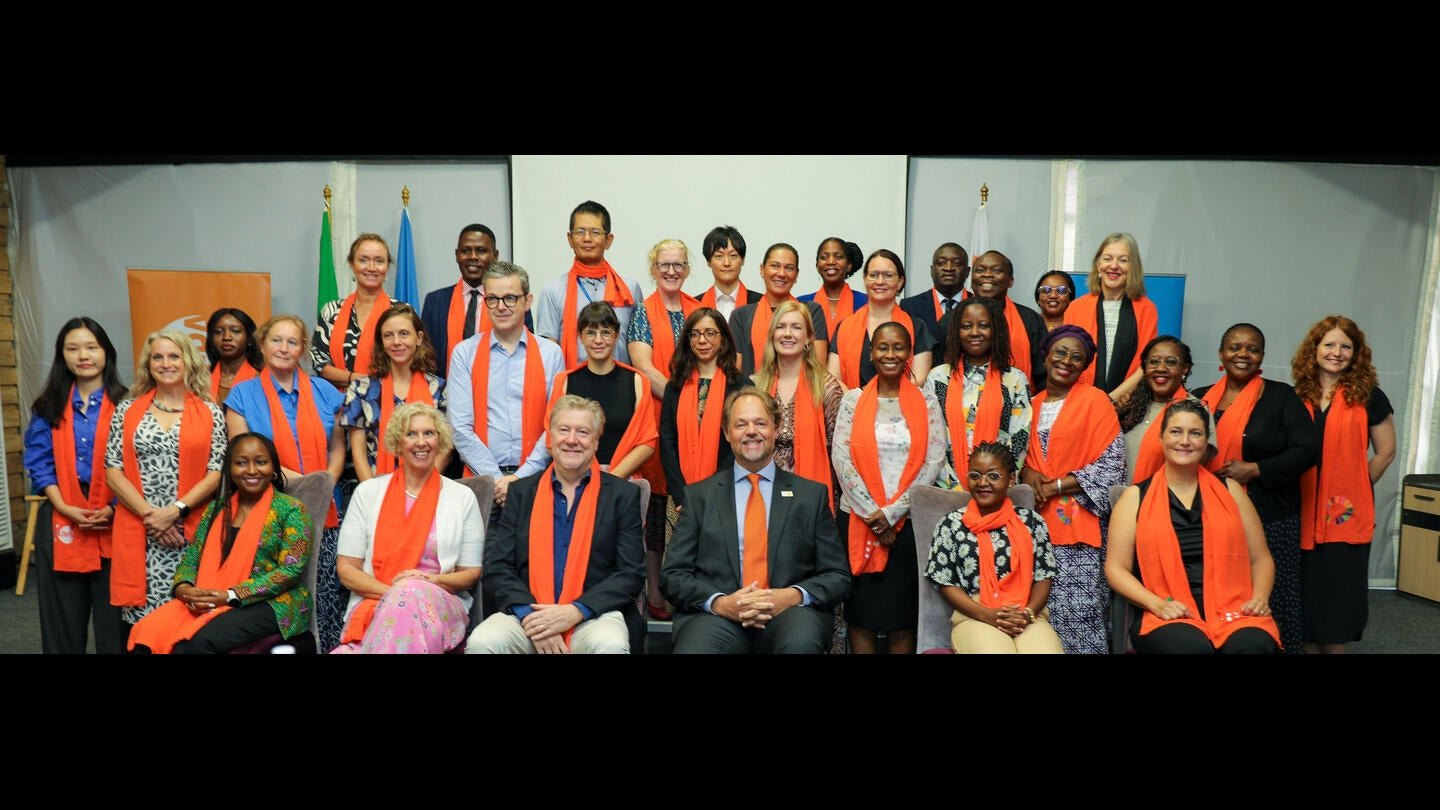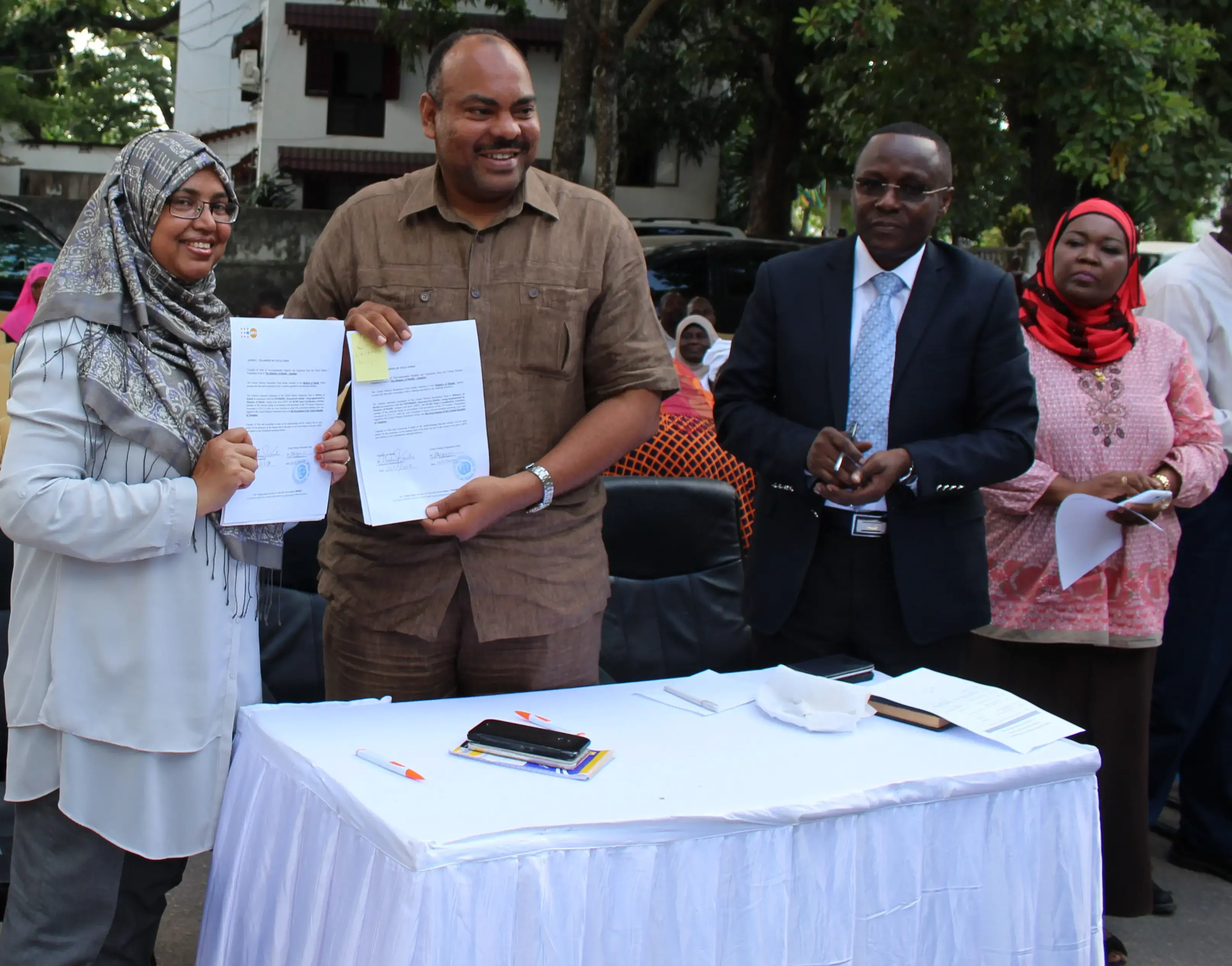13 February 2025, DAR ES SALAAM, Tanzania – The United Nations Population Fund (UNFPA) hosted a pivotal partners’ roundtable today in Tanzania, spotlighting the urgency of accelerating access to Sexual and Reproductive Health and Rights (SRHR) in the country. The meeting brought together like-minded Development Partners to discuss the country's evolving demographic landscape and the critical role SRHR plays in achieving Tanzania’s development goals.
Growing Population: Challenges and Opportunities
Tanzania, with a population that has surged from 12.3 million in 1967 to over 61.7 million in 2022, faces a population growth rate of 3.2% per annum—more than twice the global average. This rapid growth, fueled by high fertility (4.8) and coupled with a youthful demographic (60% of the population is under 24), presents both challenges and opportunities. Tanzania is at a strategic juncture where increased investment in "Tanzanian’s" (human capital) will accelerate achieving its goals, aspirations, and opportunities to harness its demographic potential. However, realizing this potential requires deliberate investments to ensure equitable access to health, education, employment - and crucially empowering youth, especially women and girls.
Strengthening Partnerships for SRHR
During the event, UNFPA Representative to Tanzania, Mark Bryan Schreiner, highlighted the critical role of partnerships in both the achievements realized and in addressing the remaining challenges limiting universal access to SRHR across the country. He expressed gratitude for the steadfast support from partner countries, noting;
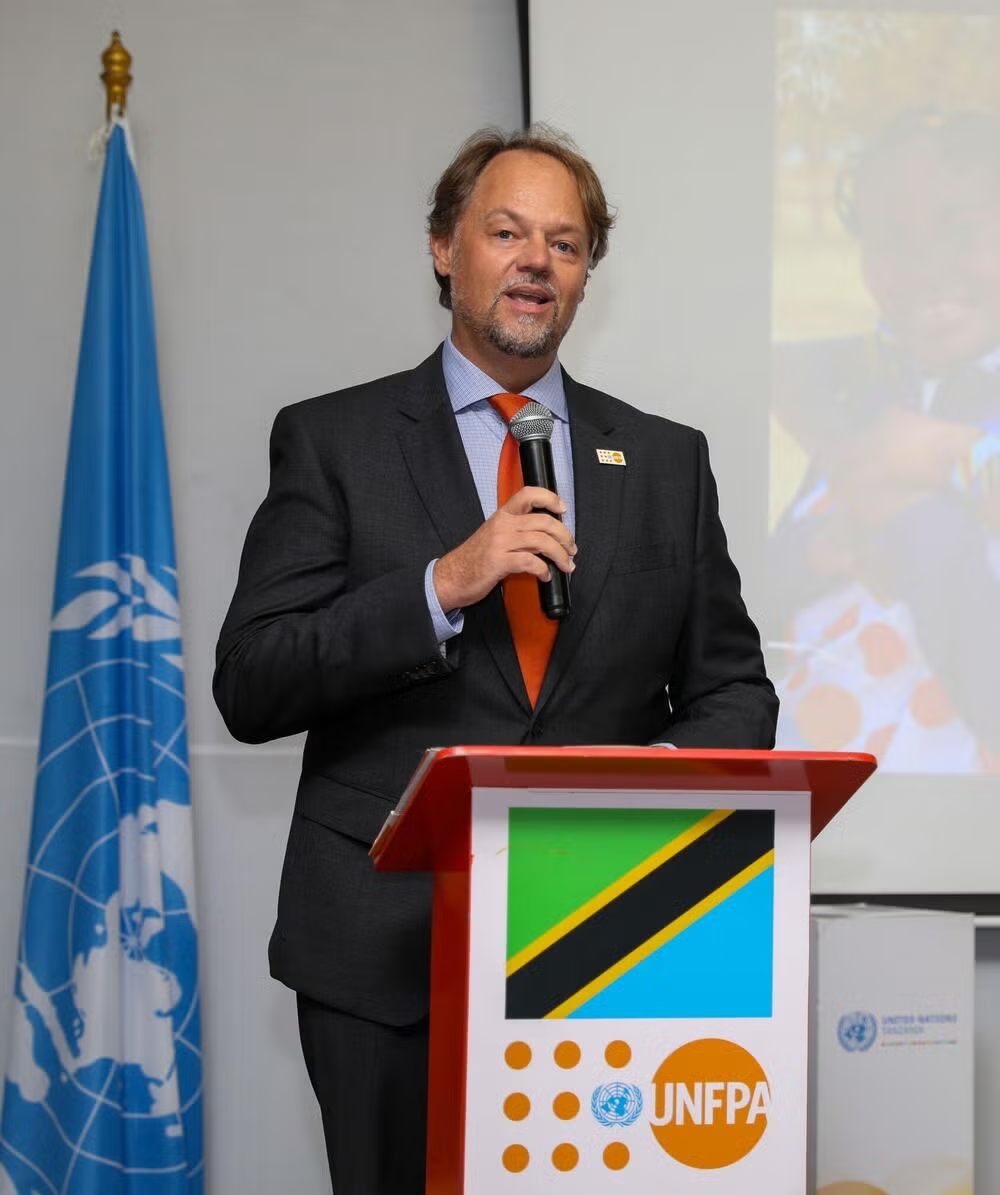
"As Partners at Core to UNFPA, we are grateful for your country's unwavering support and contributions. The core resources that UNFPA relies on are crucial to our ability to respond effectively to the evolving needs of women and girls worldwide, including in the United Republic of Tanzania. These core funds offer us the flexibility to deploy them where and when needed. This is particularly critical during times of crisis, such as in refugee camps or marginalized communities, where access to essential services can be lifesaving.”
Tanzania continues to strive towards universal access to SRH. Impressive progress has been achieved in reducing maternal mortality, while investments in family planning have yielded relatively stagnant modern contraceptive prevalence rates, and key indicators such as the adolescent birth rate showing marginal improvements since 2010. In particular, adolescent pregnancy affects 22% of Tanzanian girls, limiting their educational and economic opportunities - and undermining their potential to be the human capital that Tanzania requires.
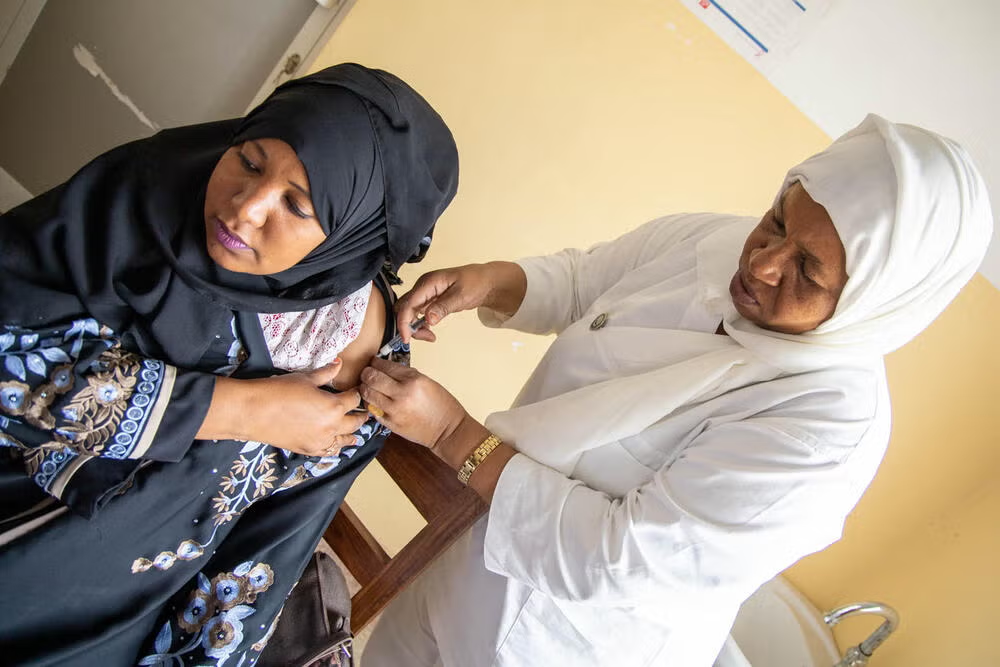
UNFPA’s Impact and Collaborative Efforts with Partners
Universal access to SRH has been accelerated by UNFPA's contraceptive procurement through the UNFPA’s Global Supplies Partnership from 2015 - 2023: addressing 53% of Tanzania’s contraceptive needs; providing 22,1 million Couple Years of Protection (CYP); preventing 10,6 million unintended pregnancies; averting 960,000 maternal deaths; and preventing 2,97 million unsafe abortions. The government of the United Republic of Tanzania has made important commitments to increase domestic financing critical to sustainable supply of reproductive health commodities, including contraceptives, especially during a period of declining donor contributions.
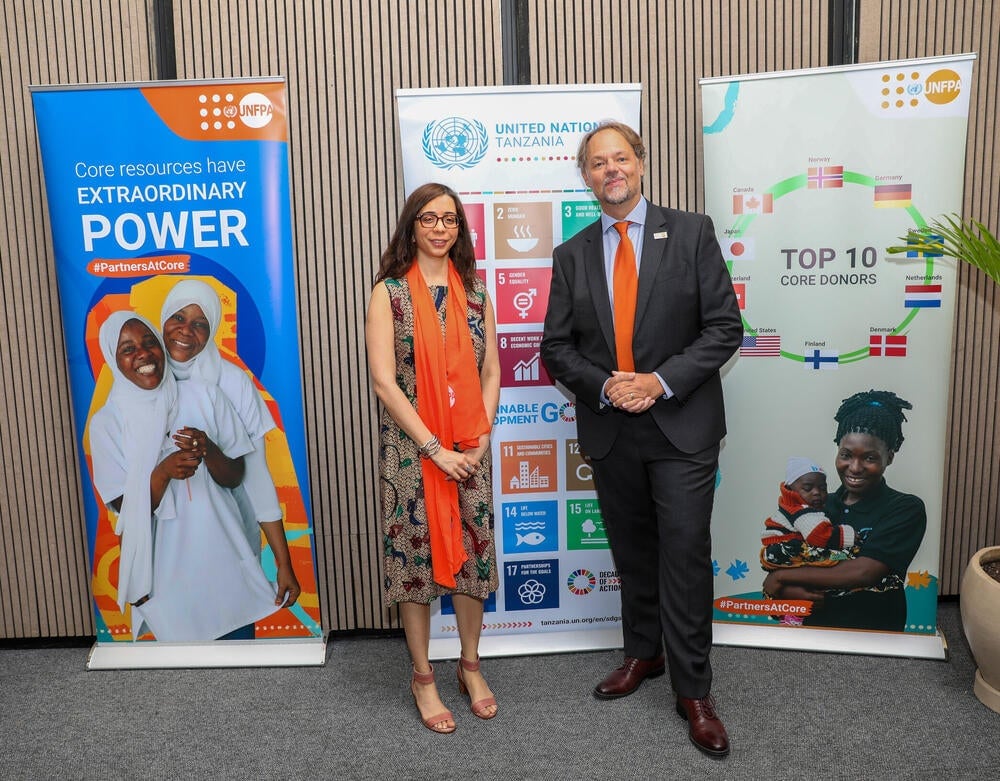
Through the roundtable event, UNFPA and Development Partners reaffirmed commitment to strong collaboration with the Government of the United Republic of Tanzania, identifying the current national development visioning process as an important opportunity to advocate for the inclusion of SRHR in national priorities, including its criticality in advancing Universal Health Insurance implementation.
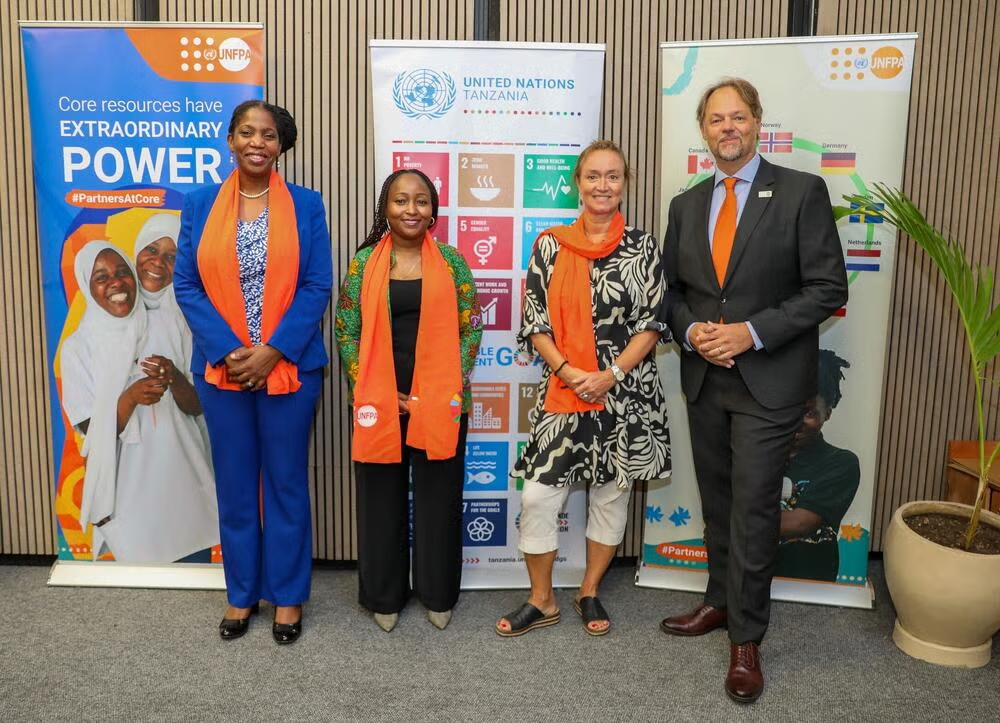
Schreiner emphasized, "In collaboration with the Government and our Partners at Core, UNFPA remains committed to national efforts to ensure that every pregnancy is wanted, every childbirth is safe, and every young person’s potential is fulfilled. In an increasingly uncertain world, where global challenges like the climate crisis, migration, and threats to women’s health are intensifying, core resources are more essential than ever to ensure that we continue to advance the rights and health of women and girls everywhere."
Young Voices Drive Change
A powerful voice at the roundtable was Getrude Clement, a young advocate and Youth Advisory Panel member.

"I am grateful for the continuous support from development partners through UNFPA. This support has helped many young people like me realize our dreams. Thanks to the access to reproductive health services, I have been empowered to make informed decisions about my future, and I am now pursuing my dreams with confidence,” Getrude Clement said.

The partners’ roundtable took place at a crucial juncture as Tanzania develops its National Vision 2050, with aspirations to achieve upper-middle-income country status by 2050. Partners proclaimed that SRHR, especially family planning, will be a critical enabler in reaching this ambitious goal and to ensure no one is left behind.
UNFPA’s support fully aligns with Tanzania’s national priorities as outlined in key strategic frameworks such as the National Plan for Reproductive, Maternal, Newborn, Child and Adolescent Health and Nutrition 2021/22 - 2025/26, known as One Plan III, and the National Plan of Action to End Violence Against Women and Children 2024/25 – 2028/29. Through supporting national plans focused on addressing unmet needs for family planning, reducing maternal mortality, and eliminating harmful practices, including child marriage and female genital mutilation; UNFPA and partners’ support contributes to the broader national vision of unlocking growth, achieving gender equality and realizing sustainable development.
Doreen Michael, another youth leader from the Youth Advisory Panel highlighted the importance of innovation and technology in realizing Tanzania’s Vision 2050.
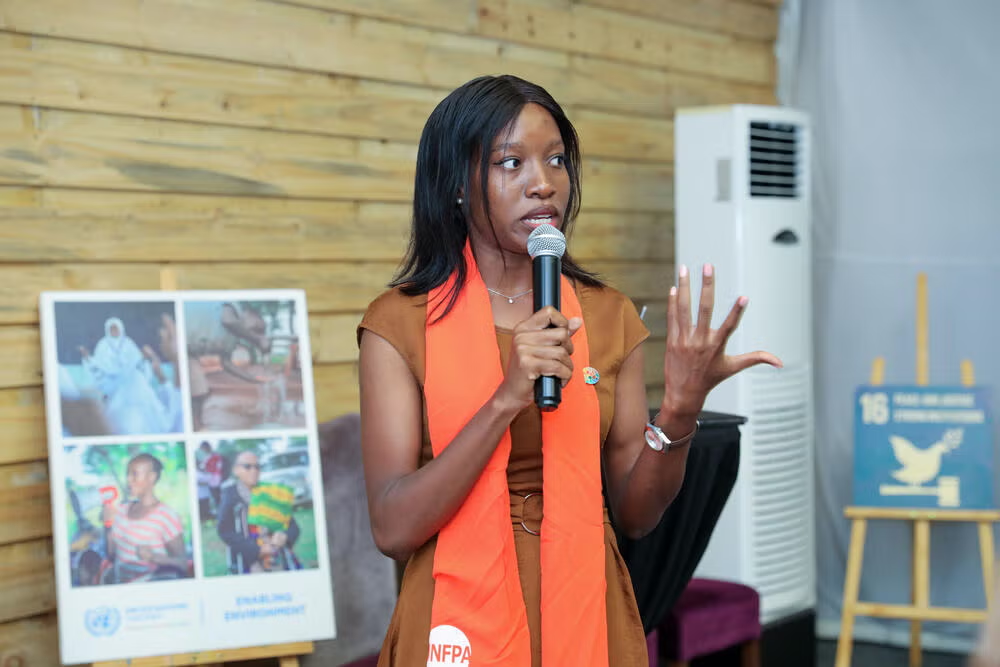
"For Tanzania to meet the ambitious goals in Vision 2050, we need to harness innovation, technology, and sustainable resources. Investment in sexual and reproductive health is a fundamental part of that vision. It is essential that we continue to integrate new solutions to provide quality services that will help us achieve inclusive growth and development,” Doreen emphasized.
Looking Ahead: A Shared Commitment
In his closing remarks, Schreiner reiterated the importance of continued partnerships in accelerating progress towards universal access to SRHR:
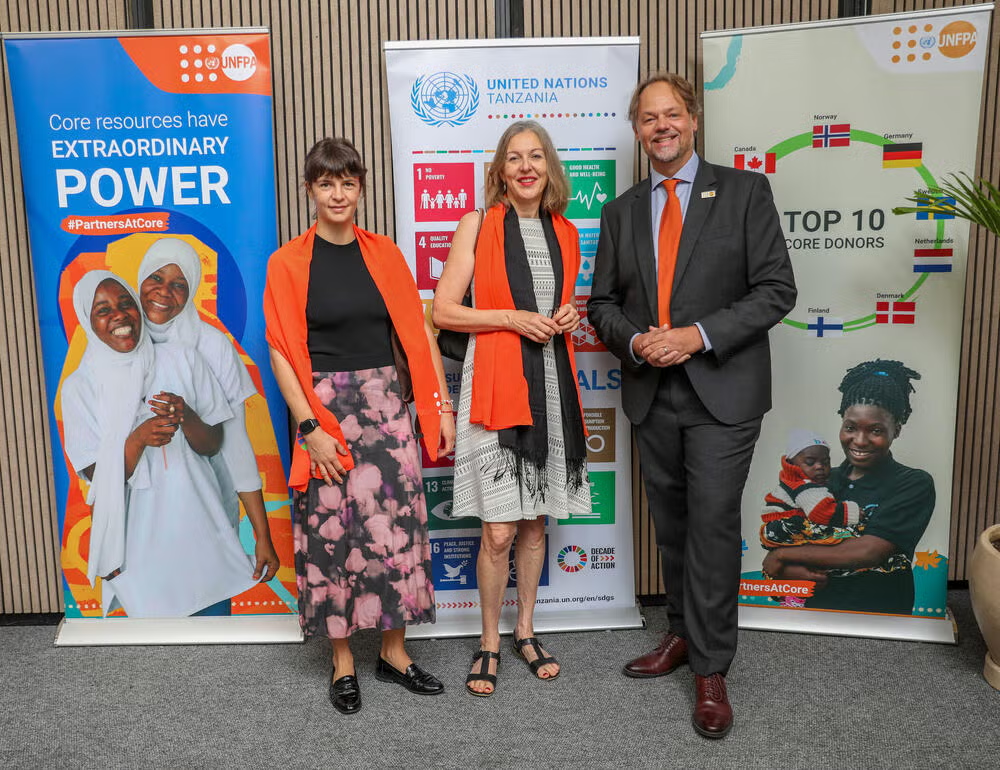
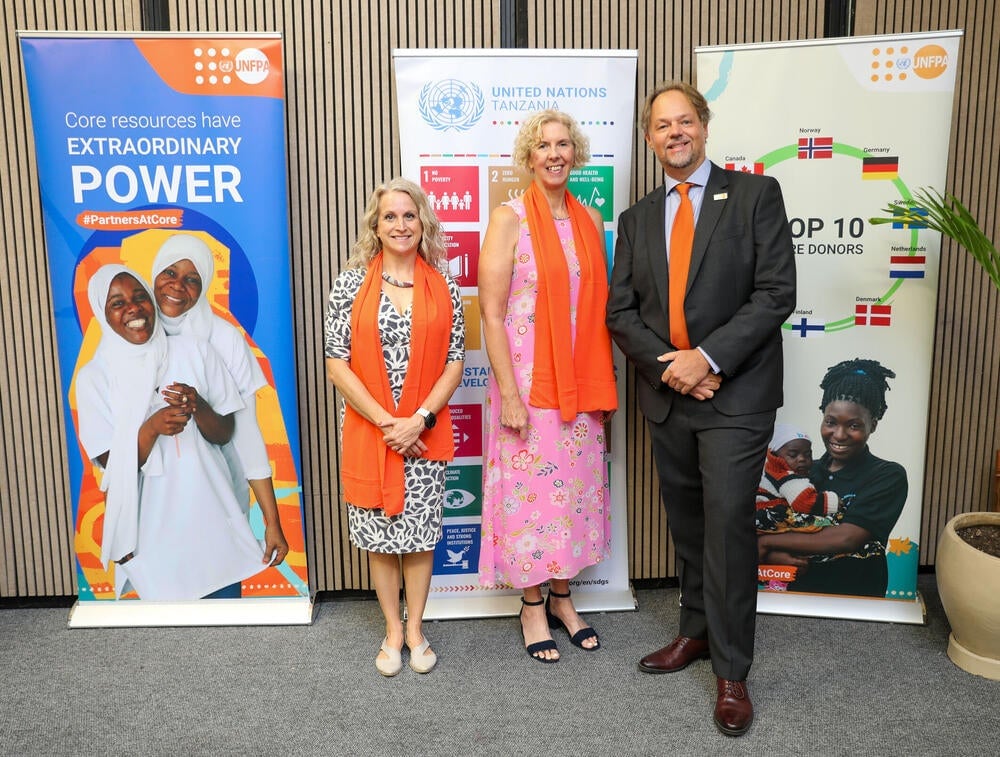
"Our partnerships provide hope—not only for the women and girls we serve today but for the 10-year-old girl whose future we are shaping through our collective actions. Let us continue this momentum, ensuring that she grows up in a world where her choices are respected, her potential is nurtured, and her dreams can become a reality." Mark Bryan Schreiner concluded.
--
Media Inquiries:
Dr. Warren Bright,
UNFPA Communications Analyst,
United Republic of Tanzania
Mobile: +255 764 43 44 45
Email: bwarren@unfpa.org

